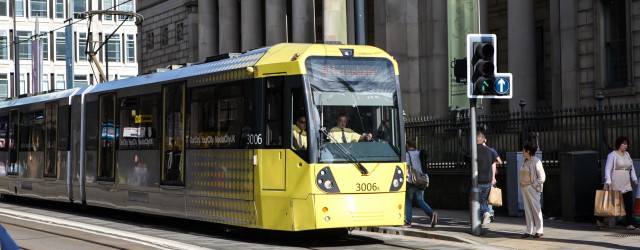19 July 2013 at 10:25
The chief executive of Everton Football Club; the Managing Director of Liverpool Football Club; the soon to be commissioning editor of Radio Five Live; a leading journalist from the Guardian; a bestselling author; David Moyes mentor; the leader of Manchester City Council; the cabinet member for housing on Liverpool city council; the city’s head of regeneration & employment; the shadow secretary of state for Education; around 400 business delegates – and a campaign to regenerate one of the key areas of Liverpool city centre. That, in a nutshell, has been ‘the week that was’ as far as Downtown Liverpool in Business is concerned.
Liverpool Business Week has now become an integral part of the business events calendar in the city, and this week was inspirational, challenging and rewarding.
From the first event at Novotel with the two senior executives from our two football clubs, through to this morning’s breakfast roundtable at Liverpool Community College with Stephen Twigg, we have generated a debate and discussion that has identified problems but, mostly, found solutions too.
There were too many opinions, ideas and tips to report in one blog, but for me the 2013 Liverpool Business Week provided the following:
A recognition that though ambitious for the future, both Everton and Liverpool are struggling to keep pace with the Premier League’s ‘new order’. If new stadia, or extended stadia in the case of Anfield, are not forthcoming soon, then that gap will simply grow, making a genuine challenge for a place in the elite top four a distant dream. Can the clubs afford to be scrapping to be ‘the best of the rest’ or does something have to give? Indeed can the city accept that we will no longer boast potential champions in our national sport? Many concluded after Monday’s conversation with Robert Elstone and Ian Ayre that the issue of a shared stadium is dead. I’m not convinced that this is the case. Watch this space.
Traditional media isn’t dead either – but it is changing dramatically and maybe not for the best in the long term. The explosion of social media, free online news sites and rolling 24/7 TV news channels means that we have better access than ever before to news. But what is the quality of that news and who, in future, will pay for investigative journalism?
If you believe in yourself, have a clear personal vision and goals, read Andy Bounds excellent ‘The Jelly Effect’ and can catch an hour a week with Michael Finnigan, you will undoubtedly succeed in business. The 100 plus Downtown members who attended Wednesday morning’s event at the Hard Day’s Night Hotel were absolutely buzzing from the presentations made by our guest speakers and you could feel the energy and optimism in the room. If you missed it, you missed out!
Manchester is, in the main, the exemplar in terms of city regeneration, growth and governance because it has outstanding leadership, and has had now for over a quarter of a century. Nobody who attended yesterday’s Property & Regeneration conference could be anything but impressed with Sir Richard Leese who gave a fascinating insight into how he and his team have delivered a dynamic, entrepreneurial and ‘joined-up’ city region.
The regeneration of Ropewalks, Downtown’s latest campaign as reported in our Top Storyhere can happen if we demonstrate the same ‘can do’ attitude as Leese and his colleagues, believe in ourselves as a city, draw up a vision and a plan – and create a genuine private-public sector partnership to provide a solution to a problem that has blighted Liverpool for far too long.
It was a busy week, and a hard one for the Downtown team. But it was most certainly worth it, mostly because of the final thing I was reminded of. Liverpool’s business community is vibrant, energised, confident – and it’s got its mojo back big time.





